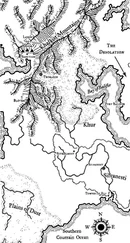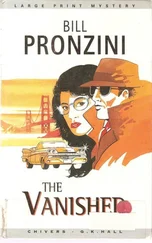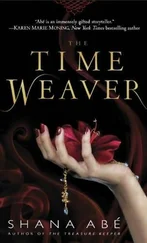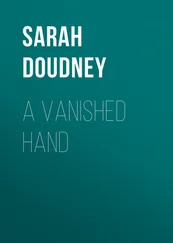A flash of fear.
‘Right, I’d better be off, Dunc.’ The other member of staff was back at the booth. He looked at me, looked at Pell, then must have assumed he’d interrupted a conversation, and held up both hands in apology. ‘Oh, sorry – didn’t mean to jump in.’
‘It’s fine,’ I said. ‘I think we’re done.’
Pell glanced at me sideways and then shifted away, further back into the booth. The other guy reached down and grabbed a portable ticket machine off the floor, slinging it over his shoulder. He was an RCI; a ticket inspector. When he came up, he looked between us again and must have sensed something was going on.
‘Is everything okay?’
Pell didn’t say anything, so I stepped forward and introduced myself. I held up the picture of Sam again. ‘Do you recognize him?’
The RCI patted the breast pockets of his jacket and then reached into the left one and removed a pair of half-moon glasses. He looked older than Pell – forty-three or forty-four – but was taller, broader and in better condition. His nose was uneven – angled slightly left – like it might once have been broken and not properly reset, and I wondered if he’d grown up in and around boxing clubs. He had the build of a middleweight. ‘Did he use this station?’ he asked, eyes still studying the photograph.
‘Every day.’
But he’d already started shaking his head. He looked up, lips pursed, face telling me everything I needed to know. ‘I’m sorry. We get so many people through here.’
I took the picture and thanked him.
‘Did you recognize him, Dunc?’ the man asked.
Pell’s face dissolved into panic again as he was drawn back into the conversation. He ran a hand across his face, stubble crackling against his hands, and I saw he was wearing a silver ring with an old rune symbol imprinted on it. Then he looked down at the floor. He brushed an imaginary hair from the thigh of his trouser leg, cleared his throat, reached down further to his boots – black steel toecaps with red stitching in them – and scratched something else unseen from them. He didn’t want to answer.
‘Dunc?’ the RCI asked again.
‘No,’ Pell finally said, then quietly added, ‘No, I didn’t.’
The RCI started frowning, as if he didn’t understand what was going on with Pell, then turned to me and shrugged. ‘I can ask around if you like.’
‘No, it’s fine. It was a long shot.’
‘Okay, well, I’d better be off.’
I nodded. ‘Thanks for your help.’
He smiled and headed through the gateline. When I turned back to Pell, he was out of the booth and standing next to the ticket machines about thirty feet away – like he was trying to put some distance between us.
But it didn’t matter.
Distance or not, I’d remember Duncan Pell.
16
Spike texted to tell me he’d emailed through Sam’s financial history and phone records, so, back home, I made myself a sandwich, then sat down and booted up the computer. There were two PDFs waiting for me.
The first one took in everything he’d ever paid into or set up: bank accounts, credit cards, mortgages, ISAs, healthcare, insurance policies, pensions and student loans. A man’s adult life reduced to twenty-five pages. There weren’t many surprises, but there was a more detailed breakdown of the couple’s life and health insurance, and a year’s worth of statements from both bank accounts.
Sudden, unexplained changes in insurance policies are one of the warning signs in the moments before a person goes missing, but the Wrens’ policies seemed pretty standard, and the premium had remained consistent for the last three years. The biggest concern, as Julia had outlined the day before, was their mortgage: they had just shy of £600,000 to pay back; massive by any standard.
I moved on to the bank statements.
The first set was for the Wrens’ joint account. Before June 2011, they’d never been in the red. Then Julia’s redundancy caught up with them. Suddenly they were struggling to make ends meet every month. The patterns of their life which had marked out the first three months of 2011 – the restaurants they ate in, the cinemas they went to, the places they went on weekends – began to dry up, and soon the only constant was the lack of those things. By autumn 2011, they hardly seemed to go out at all.
The second set of bank statements was for Sam’s own personal account, which had little activity, and none after the day he disappeared until it was closed on 3 April 2012. I flipped back through my notes to the discussion I’d had with Julia about their finances. Halfway down I’d written, ‘Julia had account closed and money transferred to joint account on 3 April this year.’ It must have been painful for her: the moment she finally accepted he was gone.
Sam’s mobile was registered to Investment International but doubled up as a personal phone. In the second PDF, Spike had secured names and addresses for every incoming and outgoing number. During the week, most of the calls were to other businesses, or to clients, although there was at least one call a day made to Julia, a text or a call to his brother Robert, and more irregular calls to friends of his. The one he called most often was a guy called Iain Penny, but there were other repeats – David Werr, Abigail Camara, Esther Wilson, Ursula Gray – and when I cross-checked them with the list Julia had given me, I saw they were Investment International employees. On weekends, business-related calls were stripped out, leaving Julia, Robert Wren, Iain Penny – who, judging by the number of texts that had passed between them, was a good friend as well as a work colleague – and a few others: a cousin in Edinburgh, an aunt and uncle in Kent, a few to his boss, a man called Ross McGregor.
The document was split into two sections: twelve months of records for the period beginning 1 January 2011 and running through to the day Sam went missing on 16 December; then, secondly, the six months to 1 June this year. After 16 December there wasn’t a single call made from the phone by Sam, but a lot of people had tried to call him: Julia, his brother, Ross McGregor, friends. There was a call from a number at the Met too, which was presumably PC Brian Westerley, who had opened the file on Sam.
Then I noticed something.
Cross-checking the phone records with Julia’s list for a second time, I realized I’d made a small oversight: Ursula Gray. Her calls came during the same periods of time as the other people Sam worked with – between 9 a.m. and 7 p.m. on weekdays – but while Ross McGregor, David Werr, Abigail Camara, Esther Wilson and Iain Penny were all down on Julia’s list of names as work colleagues of Sam, Ursula Gray wasn’t.
She wasn’t on the list at all.
Which meant Julia didn’t know anything about her.
In the period between 7 January and 2 September 2011, Sam and Ursula Gray had had 97 telephone conversations with each other, and sent 186 texts. After 2 September, contact dropped off dramatically: 4 calls and 10 texts in September, half that in October and none at all in November and December.
Straight away, my thoughts turned back to the conversation I’d had with Julia the day before.
Did you think he might have been seeing someone else?
Because he was working so many hours?
Right.
I really don’t think so.
You never had any reason to suspect him?
No.
You didn’t entertain the possibility?
I thought about it a lot at the start. I checked his email, checked his phone, but Sam just … For a man, he didn’t have much of a sex drive.
I wrote down Ursula Gray’s name and address.
Julia seemed unconvinced by the idea of Sam cheating on her, though I wondered how much was belief and how much was denial. In reality, nothing in the phone records backed her up. And, sooner or later, it seemed likely she’d have to face the truth about her husband: that he’d lied to her – and, worse, that the man she thought she knew, she didn’t really know at all.
Читать дальше












